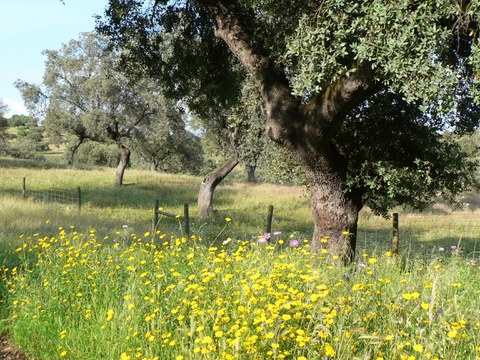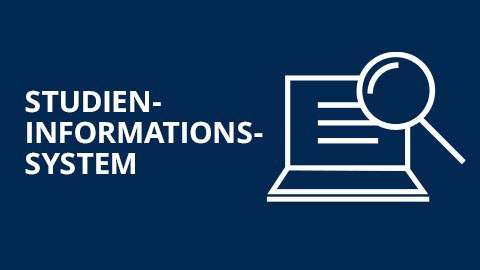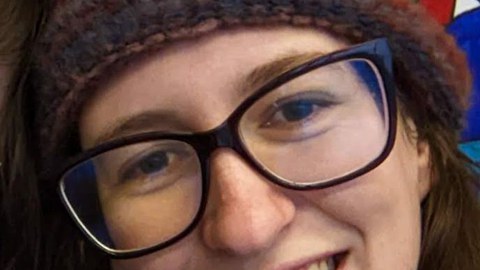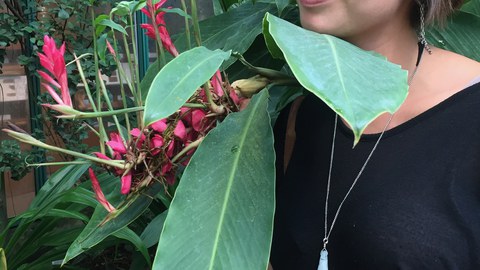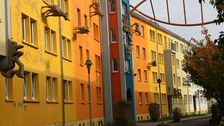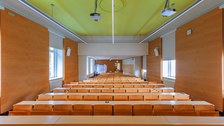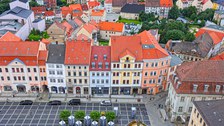Study Ecosystem Services
Table of contents
You already study Ecosystem Services?
Look for Information for students
Assessing nature´s services for human well-being
Presentation on the English-taught master program ECOSYSTEM SERVICES © IHI Zittau
The global loss of biodiversity and ecosystem degradation are among the grand challenges of global environmental change. In this context, ecosystem services as the direct and indirect contributions of ecosystems for human well-being are gaining increasing attention in science, policy and society. Identifying, mapping and assessing ecosystem services as well as capturing their values in public and private decision-making are important objectives of national, European and international biodiversity and sustainability strategies. At the global level, this demanding task is not least part of the working program of the Intergovernmental Science-Policy Platform on Biodiversity and Ecosystem Services (IPBES). IPBES is an intergovernmental body which assesses the state of biodiversity and of the ecosystem services it provides to society, in response to requests from decision makers.
Against this background the international Master’s programme on Ecosystem Services provides students with the knowledge base and methods to analyze pressing environ-mental problems and to develop societally relevant solutions. A special focus lies on inter- and transdisciplinary approaches from the natural and the social sciences in order to conserve and sustainably use biodiversity as well as to secure the sustainable provision of ecosystem services for present and future generations. The program combines the natural and social sciences expertise of the International Institute (IHI) Zittau and the Faculty of Environmental Sciences at TU Dresden, the Senckenberg Museum of Natural History in Görlitz, and the Leibniz Institute of Ecological Urban and Regional Development (IOER) in Dresden.
Video: Testimonials of ESS-students
Short Facts
| Degree | Master of Science |
|---|---|
| Duration | 4 semesters (2 years) |
| Language of instruction |
English |
| Admission requirements | Bachelor (at least 6 semesters!) in life, environmental, social or economic sciences, English skills on level B2. |
| Study locations | Zittau (IHI Zittau), Görlitz (Senckenberg Museum for Natural History), optionally electives from focus areas at the Faculty of Environmental Sciences in Dresden or Tharandt |
| Semester fee | Most students only pay a Semester fee according to the fee regulations of the "Studentenwerk Dresden", including the option of a semester ticket). In some cases (2nd master degree, long-time studies etc.), study fees can be compulsory. |
| Accreditation | diploma |
Further important information and conditions regarding the study program, such as the study requirements, the deadlines and the link to the application, can be found in our central Study information system / Studieninformationssystem (SINS). the program at SINS
Structure and study locations of the program
In the first two semesters, the fundamentals of the subject are taught, half of the 2nd semester as well as the entire 3rd semester then offer the opportunity to specialize in five focus areas. In the 4th semester, the master's thesis is written and defended.
The study locations of the compulsory area are Zittau (basic modules) and Görlitz (taxonomy in the collections of the Senckenberg Museum), the study locations of the focus areas are Zittau, Görlitz, Tharandt and Dresden.
valid for: ESS, intake 2023
Unless otherwise stated, the courses take place at IHI Zittau.
1st Semester:
- Ecosystem Services – Concepts and Development
- Applied Ecology (Senckenberg Museum for Natural History Görlitz)
- Introduction into Key Taxa (Senckenberg Museum for Natural History Görlitz)
- Methods of Empirical Social Research
- Intercultural Communication and Foreign Language Skills
2nd Semester:
- Biodiversity and Ecosystem Governance
- Ecological Economics
One of the two following modules must be chosen:
- Ecosystem Services in Practise - specialization (10 ECTS)
- Ecosystem Services in Practise - foundations (5 ECTS)
The courses take place at the places of internships.
Mode of choosing the electives:
Modules totalling 45 credit points must be chosen, of which:
- 5 or 10 ECTS from the general elective area
- at least 20 ECTS from the selected focus areas
- the remaining credit points can be chosen from the selected or another area of focus.
Focus areas:
1. Environmental Social Sciences
with the modules
- Nature and Ecosystem Services in the City
- Resource Management and Sustainability
- Ecosystem Services – Case Studies
- Quantitative Methods of Empirical Research
- Biodiversity Management and Sustainability
- Environmental Law
Courses of this focus area take place at IHI Zittau.
2. Biotechnology
with the modules
- Environmental Chemistry
- Environmental and Fungal Genomics
- Environmental Analysis
- Applied Microbiology
Courses of this focus area take place at IHI Zittau.
3. Ecology and Collections
with the modules
- Field Ecology
- Museum and Collections
- Collecting and Analysing Biodiversity Data
- Diversity and Ecology of Fungi and Lichens
- Systematics and Bioindication of Bryophytes
- Zoology - Special Aspects of Collection Management
Courses of this focus area mostly take place at Senckenberg Museum of Natural History Görlitz or at the places of the internships.
4. Forestry
with the modules
- Management of Vegetation and Soil in Watersheds
- Forest Related Development Policy and Culture
- Assessment and Evaluation of Forest Resources
- Modeling
- Communication and Conflict Management
- Management Systems and Restoration in Natural Forests of the Tropics
- Management Systems of Forest Plantations and Rehabilitation of the Landscape in the Tropics
Courses of this focus area take place at the Faculty of Environmental Sciences in Dresden and Tharandt.
5. Spatial Development and Natural Resource Management
with the modules
- Introduction Into Integrated Water Resources' Management
- Circular Economy
- Ecological and Revitalising Urban Restructuring
- Global Perspectives in Spatial Development
- Environmental Development and Risk Management
- Applied Landscape Ecology
- Strategic Sustainability Management
- Resource Management
Courses of this focus area take place at the Faculty of Environmental Sciences at Dresden.
Current study documents with module descriptions can be found here.
What can I do after graduation?
Career prospects
- Research (universities, non-university research institutions, industry)
- Public administration (e.g. environmental and nature conservation ministries, authorities)
- Companies; Economic and political consulting
- International organizations (e.g. UNEP, FAO, World Bank)
- Non-governmental organizations (e.g. environmental and nature conservation associations such as WWF, IUCN)
- Science management
Why study Ecosystem Services at TU Dresden?
- Worldwide unique interdisciplinary study profile
- Absolute top topic in politics and science: This competence will be in high demand in the future!
- Study in small, highly international student groups
Ecosystem Services - one study program, several campuses!
Your "home port" is the IHI Zittau at Markt 23, where you will find the offices of your contact persons and where most of the basic compulsory courses take place (with a few side trips to the biodiversity collections of the Senckenberg Society in Görlitz).
Depending on the selected focus area, in your 3rd semester you will predominantly study courses in Zittau, Görlitz or in courses of the Faculty of Environmental Sciences in Dresden or Tharandt - the semester ticket makes it possible to change between the campuses without additional financial effort!

© IHI Zittau
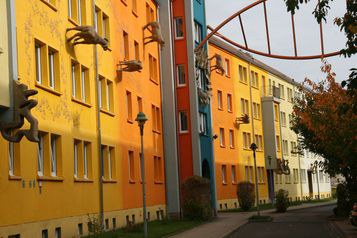
© IHI Zittau/Tettenborn
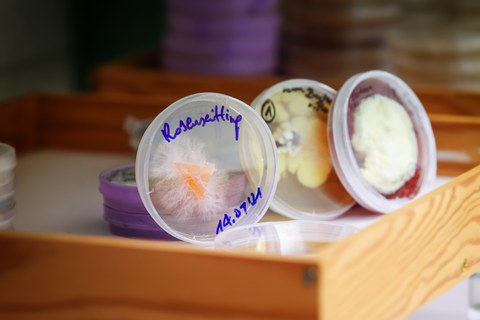
© Amac Garbe
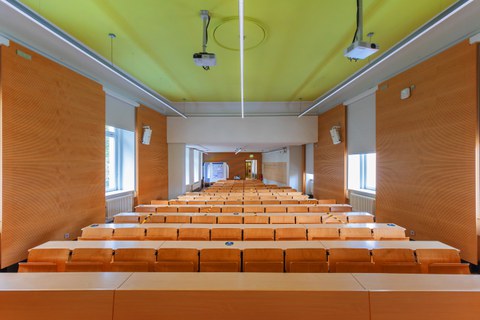
© Amac Garbe

© Amac Garbe
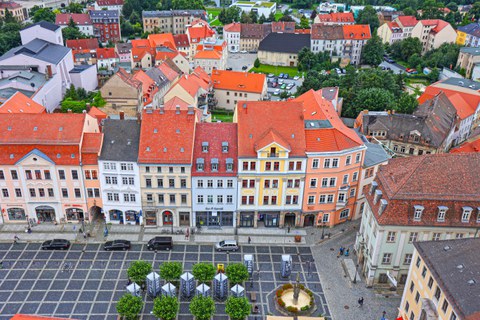
© Amac Garbe

© Amac Garbe

© Amac Garbe

© Amac Garbe
Academic consulting on the program
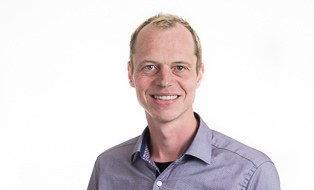 © TU Dresden
© TU Dresden
Research and Teaching Fellow
NameDr. André Tiemann
Fachstudienberater Ecosystem Services
Send encrypted email via the SecureMail portal (for TUD external users only).

